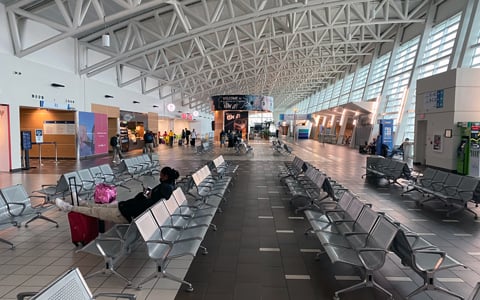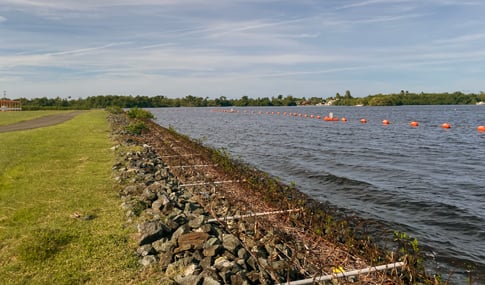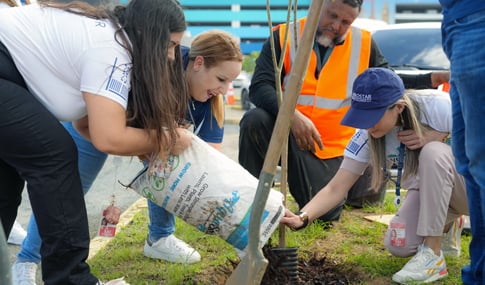
More than 10 million passengers traveling to and from Puerto Rico pass through the Caribbean Island’s Luis Muñoz Marín International Airport (SJU) every year. In 2017, Hurricane Maria impacted the island, revealing infrastructure challenges and highlighting the importance of the airport as a community lifeline during recovery. Aerostar Airport Holdings, operator of the Luis Muñoz Marín International Airport, tasked AVCON and VHB to help prepare the first Airport Sustainability Plan (ASP), which included a Climate Vulnerability Assessment. Sustainable initiatives identified in the plan are already underway, and the airport is empowered to navigate climate uncertainties and operate sustainably even during the most trying times.
Luiz Muñoz Marín International airport operates under guidance of the U.S. Federal Aviation Authority (FAA), which is working to build a net-zero sustainable aviation system by 2050. SJU received Level 1 Verification under Airports Council International’s (ACI) Airport Carbon Accreditation (ACA) program in 2023 and is part of the Puerto Rico Climate Change Council. The airport previously had an Environmental Sustainability Policy, which was the basis for the development of their Sustainability Pledge. Prior to the development of the ASP, Aerostar developed a Clean & Green Program to provide educational opportunities and implement the airport’s first sustainability initiatives.
AVCON and VHB conducted a baseline sustainability assessment and identified short-, mid- and long-term actionable projects. VHB helped SJU prioritize and develop action plans for three priority projects: conducting an Hydrologic & Hydraulic (H&H) study to address flooding and sea level rise; conducting a renewable energy feasibility study to address energy reliability and resiliency needs, as well as reducing greenhouse gas emissions; and conducting a water efficiency management analysis to assess water efficiency opportunities and water capacity challenges.
AVCON and VHB also conducted a full Climate Vulnerability Assessment in conjunction with ASP development because it is such an important factor in Puerto Rico. Climate change impacts at airports have the potential to compromise systems and operations beyond those at the airports themselves; cataclysmic events like hurricanes affect infrastructure across the island. Shifting temperature and precipitation patterns, the increased occurrence of extreme weather events, and sea level rise, among other impacts, all have the potential to compromise the integrity of airport structures, the health and safety of employees and passengers, airline schedules, and the economic viability of airport operations.
As airports are also big draws on power grids, the ASP addresses renewable sources that consume less energy and the implementation of a new power plant that operates on a cleaner fuel source than what is currently used, so the airport can remain operational especially in emergency situations when relief efforts are dependent on the airport. Incorporating solar, electric, and even hydrogen fuel sources of power can lessen impacts on the grid.
The airport is moving forward with priority projects identified in the plan, so the operations and services at Luis Muñoz Marín International Airport remain sustainable and able to accommodate passengers for years to come.
Learn more about VHB’s sustainable aviation services.




